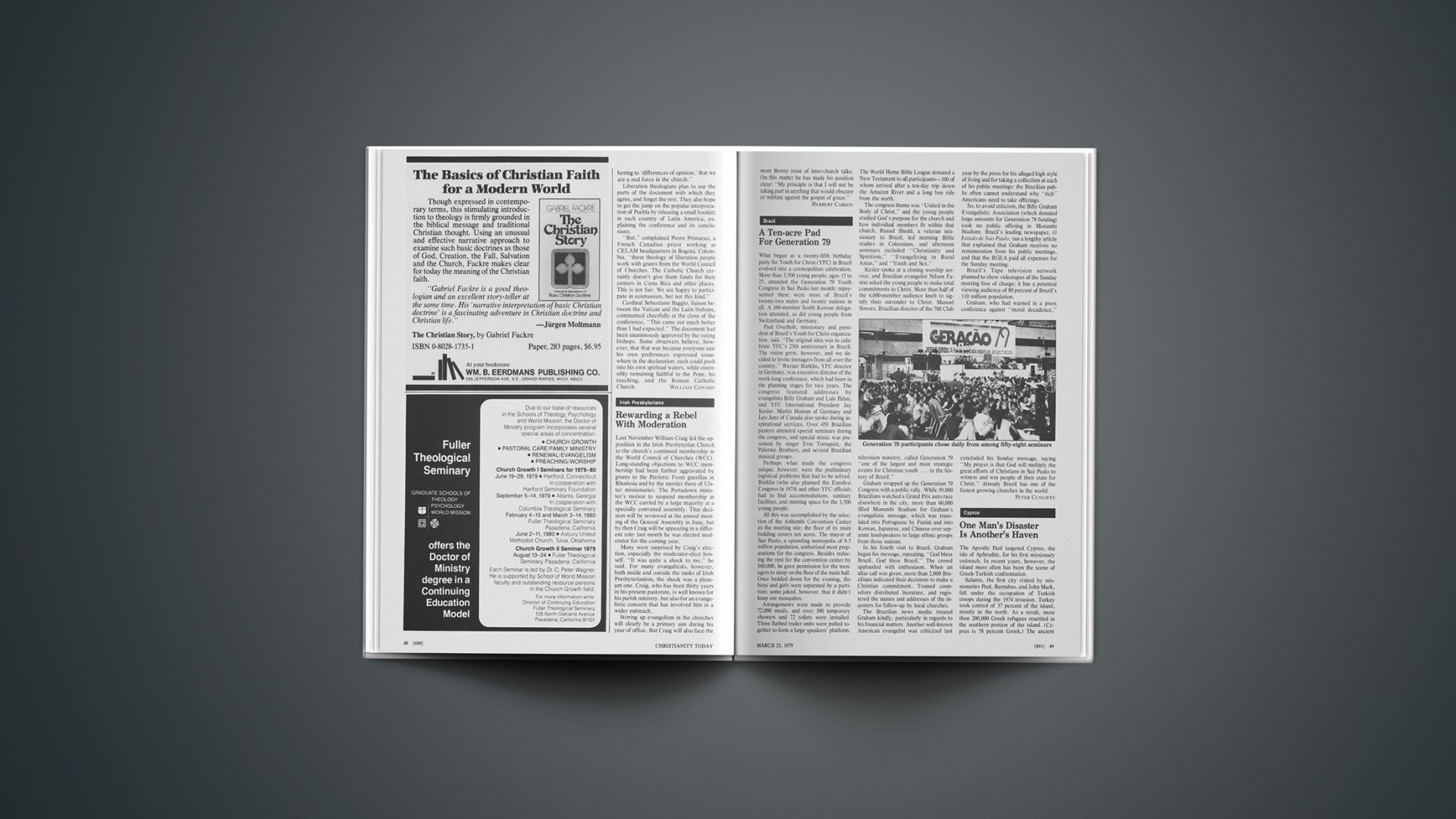The Apostle Paul targeted Cyprus, the isle of Aphrodite, for his first missionary outreach. In recent years, however, the island more often has been the scene of Greek-Turkish confrontation.
Salamis, the first city visited by missionaries Paul, Barnabas, and John Mark, fell under the occupation of Turkish troops during the 1974 invasion. Turkey took control of 37 percent of the island, mostly in the north. As a result, more than 200,000 Greek refugees resettled in the southern portion of the island. (Cyprus is 78 percent Greek.) The ancient city of Paphos, Paul’s other stop, is under Greek control.
The Turkish-occupied north now functions as a self-proclaimed, but unrecognized, entity, while the Greek sector represents the official Cypriot government. And though the island has been an area of international crisis, at least its Greek section shows signs of healing. Wide-scale evangelism—as in Paul’s day—is taking place there.
Cyprus has reaped benefits from the tragedy of the Lebanese civil war. Numerous business enterprises, banks, and other organizations have moved from Beirut—the former hub of Middle East business activity—to Cyprus. Nicosia, Limassol, and Larnaca have become the shopping centers of the Middle East.
Several Christian institutions also moved from Lebanon to Cyprus: Middle East Christian Outreach (MECO), Operation Mobilization, Living Bibles International, Southern Baptists, Youth With a Mission, and Campus Crusade for Christ (recently moved from Iran). Trans-World Radio presently broadcasts through medium wave (AM) Cyprus Broadcasting facilities in Persian, Arabic, Armenian, and English languages.
These religious groups have enjoyed extensive religious freedoms, which open doors for evangelism in Cyprus and allow a base for outreach to neighboring lands. Archbishop Chrysostomos of the autocephalous (self-ruled) Orthodox Church of Cyprus remains tolerant of evangelical groups, as was his predecessor, the late Archbishop Makarios. Approximately 70,000 Gideon New Testaments were distributed recently to soldiers in the National Guard, and an element within the Orthodox Church has begun an outreach to young people who are attracted by extreme political ideologies.
The strongest evangelical body right now in Cyprus is the Church of God of Prophecy (Pentecostal). The Presbyterians rank second, with roots in the Reformed Presbyterian Church in the U.S.A., for years the main group from outside—which ran two academies on the island. Presently, the Presbyterian Church is associated with the Evangelical Church in Greece. The Brethren, though small in number, have an active, evangelistic fellowship. The Logos bookstore in Limassol disseminates evangelistic books and films in several languages.
For the most part, however, the Turkish-occupied north has remained unaffected by the evangelistic thrust. Access to the area from the south is limited to United Nations observers or to those prepared to take the circuitous route of entry via Turkey.
CORRECTION
In the news story of John Todd in the February 2 issue, the figure that appeared regarding the number of persons at a meeting in a Maryland restaurant should have been “nearly 300.” Also, the meeting in the Somerset, Pennsylvania, church took place “last March” rather than as indicated.










